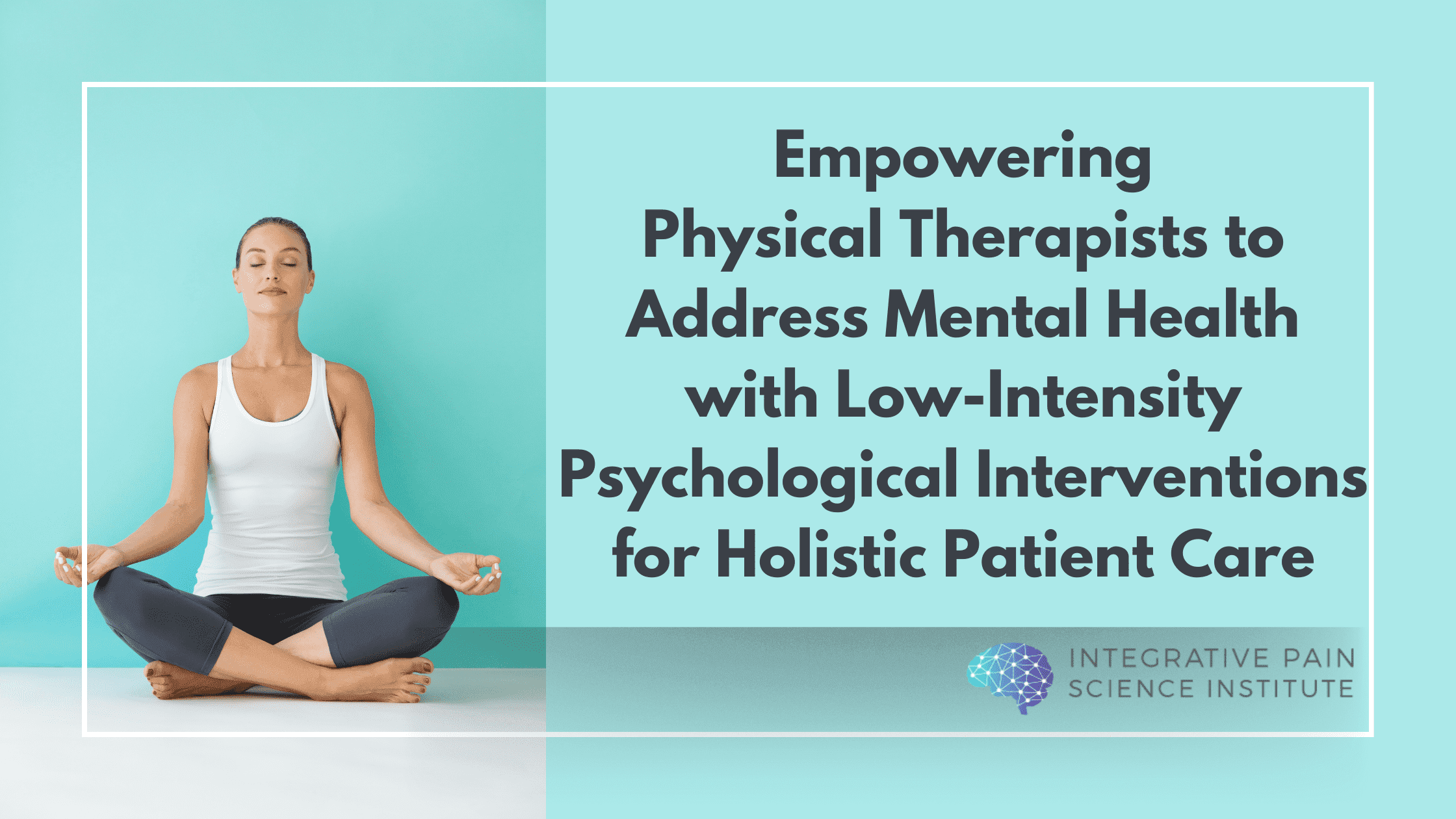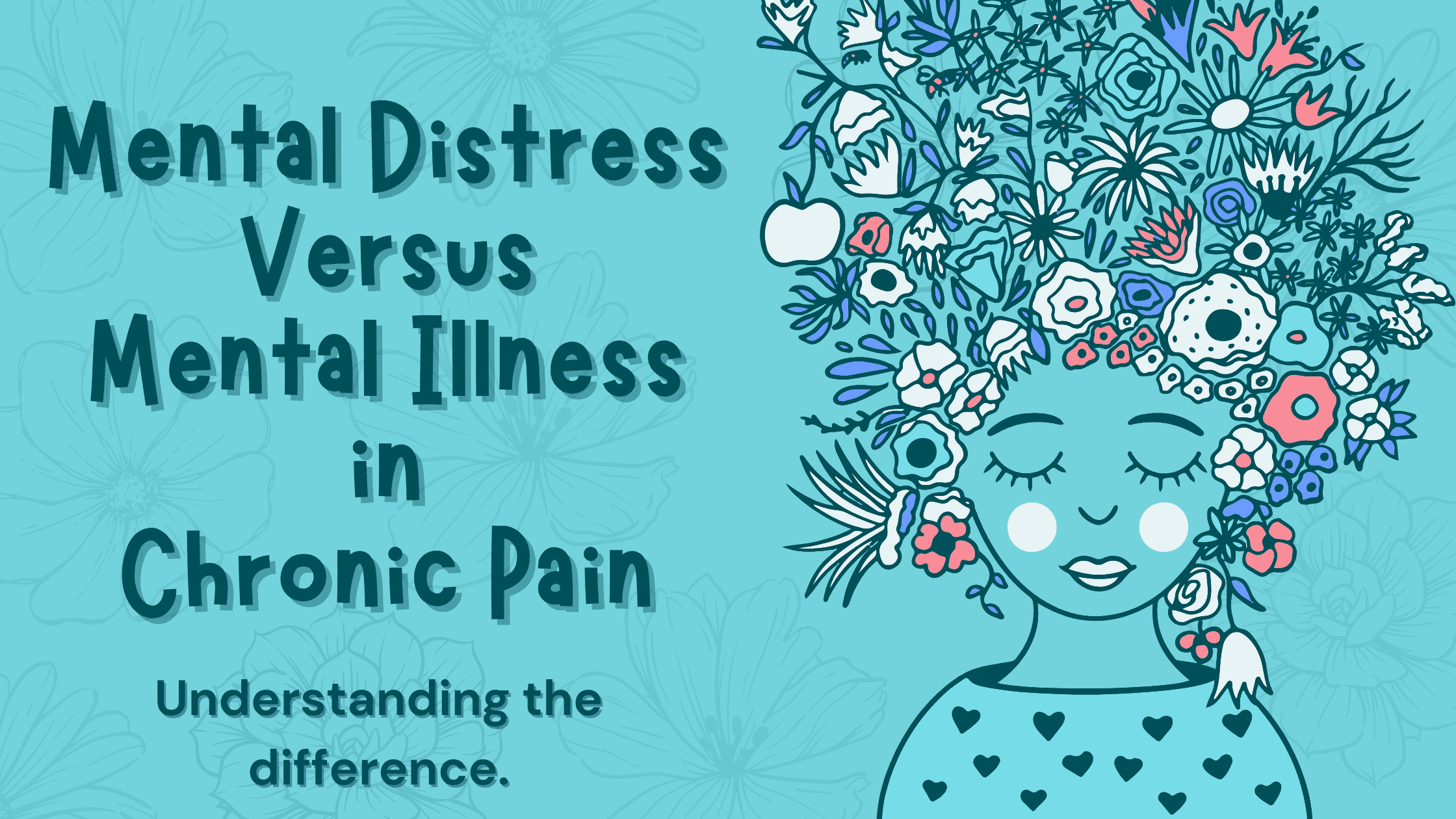Did you know that up to 41% of healthcare workers experience symptoms of burnout? (1) If you have experience working in health care, this may not be hard to believe. It can be challenging work due to productivity standards, documentation requirements, and student loan debt. Burnout has been defined as “exhaustion resulting from excessive demands on energy, strength, or resources in the workplace” and is characterized by the following symptoms: (1)
- Malaise
- Fatigue
- Cynicism
- Frustration
- Inefficiency
Would it surprise you to know that ACT is not only beneficial in treating chronic pain, but also workplace burnout?

Psychological Flexibility, the essential component of ACT, can help to fight burnout by changing relationships to events and thoughts rather than attempting to change thoughts about events.
While research regarding ACT for burnout among Physical Therapists is scarce, studies among other professions are promising.
- Nurses and nurse aids working in long-term settings that underwent ACT missed fewer days of work and reported a reduction in mental health symptoms (2).
- Another study examined health care workers and found the ones that participated in just a one-day ACT workshop demonstrated lower psychological distress, increased psychological flexibility and mindfulness skills at a 3-month follow up (3).
- Psychological flexibility has also been shown to be beneficial in decreasing anxiety and burnout in early childhood special education staff (4) and social workers (5).
- It has been noted that physical therapists practicing ACT should use it in their own life as well in order to be successful in delivering it.
Healthcare professionals implementing ACT benefit from psychological flexibility in addition to a compassionate, vulnerable, and open stance with their patients while delivering treatment (6). Below are three ways to use ACT to prevent burnout:

#1. Clarifying Values Prevents Burnout using ACT
Establishing one’s values early on in the ACT process is essential to provide a path for future decision and actions. In terms of workplace burnout, it may be beneficial to determine where your work domain values lie in relation to your other values as well as determine values within your work domain. As a physical therapist, it may be helpful to utilize the APTA Core Values as a resource to guide you. Not to say that any one of these values is superior than the rest, but it is important to determine what YOU are passionate about. Doing so will be helpful in ensuring you are taking actions along your professional career that bring you closer to your values. You will be able to ask yourself “is this action in line with my professional values?” when making decisions. This can help to make you more efficient with decisions which in turn will allow you to help fight fatigue. The compass utilized in ACT (as pictured below) can be used to clarify your values as a healthcare professional
#2. Practicing Mindfulness Prevents Burnout
Taking time to practice mindfulness can help to promote present moment awareness and self as context, two core processes of ACT. A systematic review in the American Journal of Medicine found that brief mindfulness exercises were beneficial in reducing stress and burnout symptoms. Using present moment awareness and self as context can help to enhance awareness about actions, behaviors and thoughts. This improved awareness helps to assess if your actions are successful in bringing you closer to your personally held values.
Dr. Tatta’s simple and effective pain assessment tools. Quickly and easily assess pain so you can develop actionable solutions in less time.
#3. Accepting that you cannot “fix” every patient prevents burnout
This may be one of the toughest sentences for a physical therapist to open up to. People who chose this career path are often compassionate, caring, and truly want to help their patients. It is easy to become stuck in the belief that you have to “fix” every patient you see. There is sometimes increased focus on a patient’s pain rating, their range of motion, or their manual muscle testing, but let’s face it; not every patient you discharge will have a 5/5 MMT and Numeric Pain Rating Scale of 0/10. It is important to be realistic with yourself as a clinician so that you can do so with patients and help them to set practical and attainable expectations for treatment. Establishing functional goals for patients that are in line with their personally held values is one way to steer away from becoming focused on pain. It is essential to continue to strive to deliver the best care you can as a therapist, while also realizing that not every patient will leave your treatment pain-free. When you practice acceptance it will enable you to help your patients practice it as well. This will help encourage them to accept some pain in a safe environment.

Shelby McClure is a third year Doctorate of Physical Therapy student at Augusta University in Augusta, Georgia and will be graduating in May of 2020. She completed her undergraduate education at Auburn University in Alabama where she earned a B.S. in Fitness, Conditioning, and Performance in addition to a B.S. in Nutrition and Wellness.
Shelby began dancing at a young age which helped to shape her initial interest in health. During college, she worked as a dance instructor as well as a group fitness instructor, which eventually led her to pursue a career in physical therapy.
Throughout her time at Augusta University and subsequent clinical rotations, Shelby realized her passion for pain science and psychologically informed physical therapy. Shelby is currently completing a 4-week elective with the Integrative Pain Science Institute prior to her graduation.
Shelby is from the Atlanta, Georgia area where she currently resides with her husband of 2 years.
To learn more about Shelby, visit her LinkedIn.
REFERENCES
- Reith TP. Burnout in United States Healthcare Professionals: A Narrative Review. Cureus. 2018;10(12):e3681. Published 2018 Dec 4. doi:10.7759/cureus.3681
- O’Brien, W., Singh, R., Horan, K., Moeller, M., Wasson, R., & Jex, S. (n.d.). Group-Based Acceptance and Commitment Therapy for Nurses and Nurse Aides Working in Long-Term Care Residential Settings. Journal of Alternative and Complementary Medicine., 25(7), 753-761.
- Waters, C.S., Frude, N., Flaxman, P.E. and Boyd, J. (2018), Acceptance and commitment therapy (ACT) for clinically distressed health care workers: Waitlist‐controlled evaluation of an ACT workshop in a routine practice setting. Br J Clin Psychol, 57: 82-98. doi:10.1111/bjc.12155
- Biglan A., Layton G. L., Jones L. B., Hankins M., Rusby J. C. (2013). The value of workshops on psychological flexibility for early childhood special education staff. Top. Early Childh. Spec. Educ. 32 196–210. 10.1177/0271121411425191
- Hillevi Brinkborg, Josefin Michanek, Hugo Hesser, Gunilla Berglund, Acceptance and commitment therapy for the treatment of stress among social workers: A randomized controlled trial, Behaviour Research and Therapy, Volume 49, Issues 6–7,2011, Pages 389-398, ISSN 0005-7967, https://doi.org/10.1016/j.brat.2011.03.009.
- Luoma JB, Vilardaga JP. Improving therapist psychological flexibility while training acceptance and commitment therapy: a pilot study. Cogn Behav Ther. 2013;42(1):1–8. doi:10.1080/16506073.2012.701662



